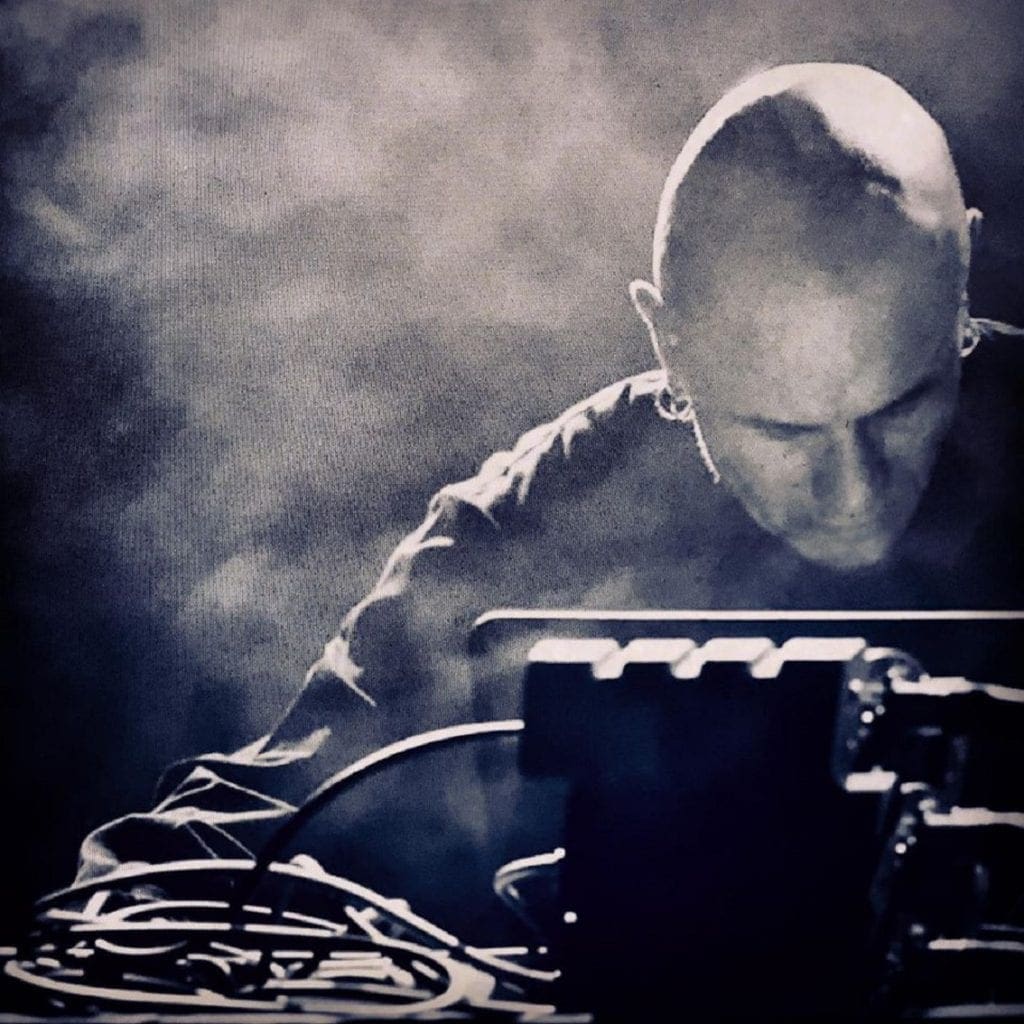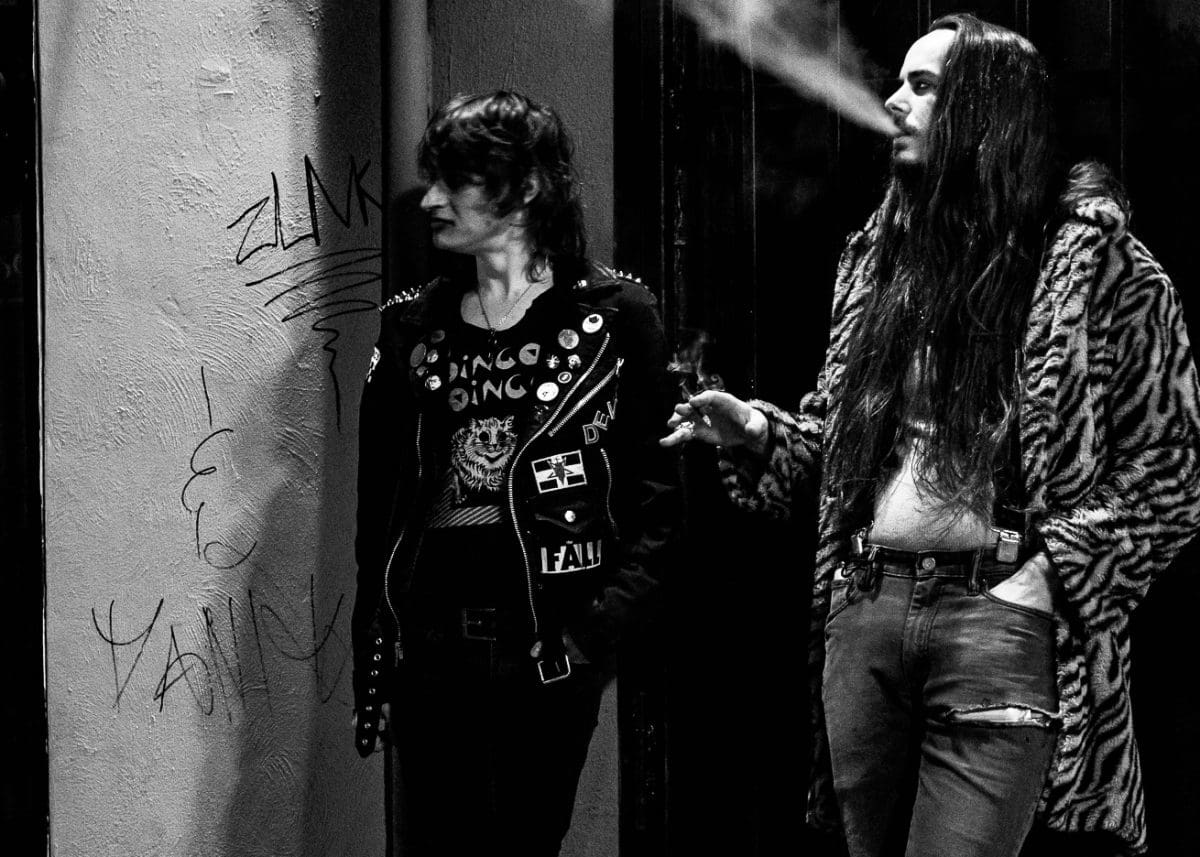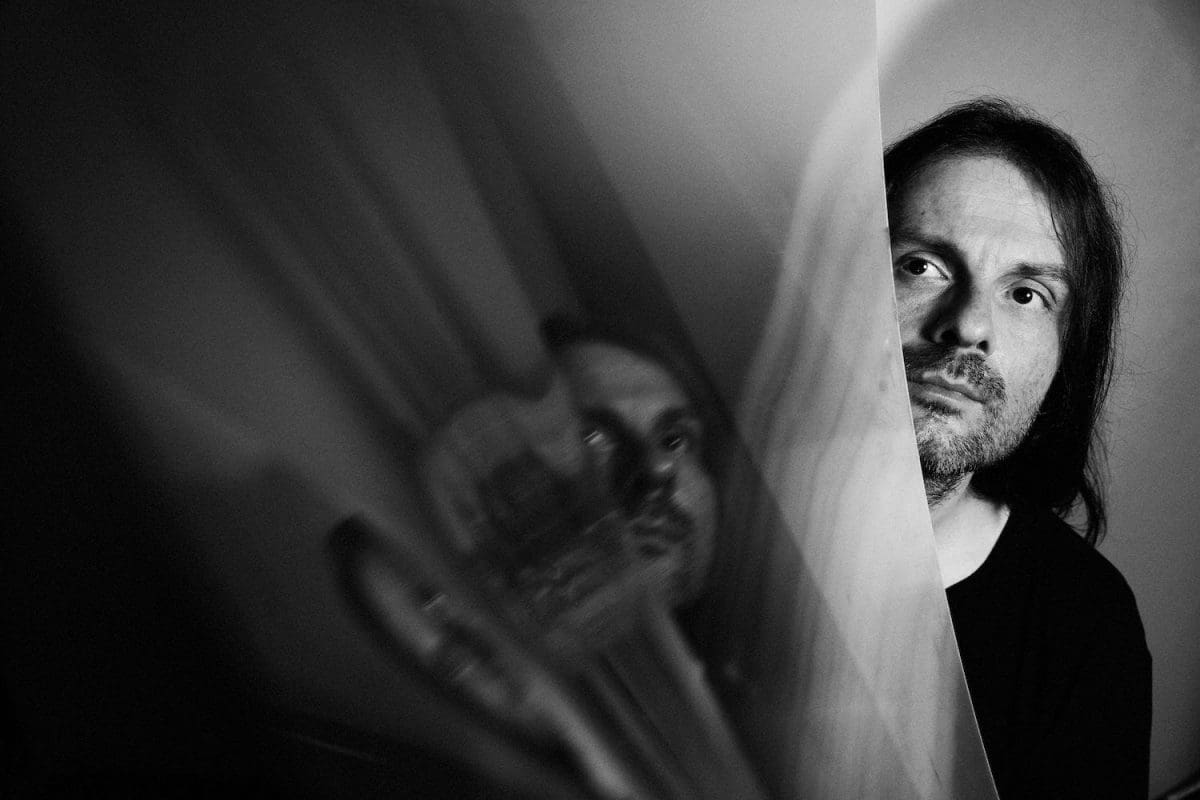‘Click Interview’ with Mimetic: ‘Techno Is Like Other Styles, Stealing From Others’


Jérôme Soudan is one of those artists I personally consider as a ‘visionary’ artist. His Mimetic project is the best exposure to realize the constant avant-garde approach he tries to inject in his work. He belongs to the ‘pioneers’ who incorporated techno music in the industrial scene, but he later on moved on with elements of IDM. Mimetic is a kind of reference, but still a project that has the power to entertain different scenes: techno and industrial! He this year released the compilation-album “RVSTD1:1998-2019” on Les Arts Minis, which is an opportunity to seize the evolution of the artist and his strong connection with techno music. Jérôme Soudan is a fascinating man, but still an essential artist from the electronic-underground scene.
(Courtesy by Inferno Sound Diaries)
Q: You this year released the compilation-album “RVSTD1:1998-2019”, which covers more than 20 years of Mimetic, but especially the ‘techno-driven’ tracks. How do you look back at more than 20 years of Mimetic and tell us a bit more about the main purpose of this album?
Jérôme: At the beginning I wanted to create a solo-project as I was involved in a lot of diverse collectives such as Von Magnet for instance, but after a few years I knew I wanted to keep that project alive no matter what direction I’ll take. During these 20 years I guess I was an alien on many different scenes. Right now I’m more into the techno scene as a DJ, but even here I’m not a typical one since I’m not that young DJ still at school, but more like a veteran who’s using his background in every set. I got a classical music education, but quite rapidly during my studies I got more interested into the experimental-, electro-acoustic- and at the same time rock- scene…
Mimetic is actually born in Berlin, but not from the techno scene. I was more into industrial-experimental. I was one of the members from the Berliner act Column One. But from the first Mimetic-album on I already incorporated some techno sounds or rhythms. Other productions were more into electronica or IDM, but still featuring techno-industrial elements. What I see nowadays is a lot of good techno-industrial acts such as Perc for instance or even Paula Temple who are directly influenced by those indus-techno sound we used to do in the beginning of the 2000’s…
The main purpose of this album was to show to the young generation what Mimetic was doing in the past, a kind of hybrid techno that they don’t know since some of the releases were not available in digital format. And it was also important to me to release it with a common thread so everybody can feel the links between the years.
Q: Speaking about all these influences, I however noticed an evolution in sound/influences throughout the ‘Mimetic-years’. Right in the beginning your music was more into industrial/experimental and ambient music, but quite progressively techno- & IDM elements joined in. How do you analyze this evolution and the impact of techno music globally speaking?
Jérôme: Actually the German post-industrial movement leading by labels such as Ant-Zen, Hymen or Hands has a strong influence in the techno scene, but it’s a bit involuntarily unfortunately. Most of the strong techno artists of today never heard of “Maschinenfest” while actually when I play in a techno event I can play exactly the same sound than if I was in the merche area of “Maschinenfest”…. There are some people from that industrial scene who say to me that they have the feeling I get lost from their scene. I don’t think so, I actually think every movement has got their artists who tend to repeat their formulas while actually the style is moving quicker than artists who are representing that style…. Techno is like other styles, stealing from others. And besides, techno is not all the time a hype style… Every decade it’s coming back, with a young generation seeking to know more, but I remember times where only house-music was the hype, and techno was considered as a non-respectable genre.
I consider techno as really dynamic and a strong music style; a kind of political atmosphere close to punk-music. I know that Iggy Pop hates techno music. But I think he was never in a rave party so far, because he could have seen the same energy. For me DAF was more important than others in that way, they played basically on the punk scene for years while actually their sound is still really present in nowadays techno, in that sense, industrial-punk was maybe more involved in the future than they pretend to be! I’m not surprised to see DAF playing in a lot of techno festivals since 10 years now.
Q: You were one of the ‘pioneers’ to mix industrial- and techno music while today most of the industrial artists are adding techno music to their compositions. This evolution is quite interesting while at the other hand the ‘real’ industrial sound and spirit have been a bit lost. What makes the link between industrial- and techno music and what do you expect for the coming years?
Jérôme: Right at the beginning industrial-music was a music for and coming from the cities (‘industrial music for industrial people’). This movement was born with artists such as Throbbing Grristle in the UK and Einstürzende Neubauten in Germany, and it was during the same years of punk-music, because the attitude was punk, not the music of course. But those artists were using electronic sounds in a very creative way while in parallel in Detroit (USA) a few artists started to use electronic music, but more in a rhythmical way. If you take the song “Yü Gung Fütter Mein Ego” there is the techno energy in it, it is repetitive and strong as hell.
For me there is the link between industrial to techno; it’s definitely the city, the sounds of the city, the power and the violence of the city. The ‘real’ industrial sound and spirit, like you say, is still here, but actually more into a scene of ‘niche’. This is something you can maybe relate to contemporary art, there is a language you have to understand in order to feel that music and it’s actually not easy for everybody. Since life is becoming more and more an everyday fight, people feel more attract by a music which is talking directly to their body, with a strong bass and a strong repetitive rhythm. Instead of what people are usually thinking, techno is a cathartic music for every-day hard-worker, and not simple party music. It’s definitely not a surprise to me to see that techno music is going stronger and stronger in South-America or Asia as well. It’s very important for me to keep an urgency in the music, something that stays strong, powerful and alive. You can listen to Stravinsky’s “Le Sacre Du Printemps” or The Young Gods‘ “Skinflower” or “Surgeon” and feel the same power!
Q: Over now to the writing of your songs. Can you give us a bit more details about the different stages you’ve to go through to compose a song/album and do you’ve special criteria/references when speaking about the global production process?
Jérôme: First there’s a long process of prospection; listening to sounds, travelling, walking in a city, recording maybe etc… Next comes a long process again; working on a few sounds for days, experimenting, transforming the sounds etc.. Then, I’ve to build a track, a kind of montage like a film, with a ‘scenario’. Then I move on adding effects and giving a ‘heart’ to the whole track and doing a kind of pre-mixing. Then comes the mixing, which can be quite long. A track is never finished! And then I let it to the mastering experts. For me the global production has to include a good balance between frequencies, this is the only way. I love when you hear every details, for instance if you listen to a Max Cooper track, which is amazing…
Q: You also did an impressive number of remixes for other artists and among them Björk. What do you try to achieve when working on a remix and are there some remixes (maybe like the one for Björk) you kept in mind?
Jérôme: Well a remix is usually a very interesting operation, because you have to dive into somebody else’s universe and make it your own track without altering the original sense of the track. But sometimes it’s delicate to do, because you cannot adapt yourself to every style, so now I’m really choosing the artists with who I work on that remixing aspect. I usually keep only half of the sounds the artist gives me and re-write a few lines and create new sounds, and I basically change the structure too. At the beginning I listen and listen to the original track, trying to find in which direction I would have been if I was the composer and when I find my own focus then I can go on and re-create a new structure.
Q: I think to remember you lived a few years in Berlin, which is often considered as the ‘place to be’ when it comes to techno music. What has been the impact of your ‘Berliner years’ on your creation and your evolution as musician/producer and are there other places/people which/who had an important impact?
Jérôme: Yes Berlin was important, especially because it was right after the end of the Wall. I left berlin in 2000, and before that it was such a field of experimentation, it was a great time there, not only for techno-music, but also for experimental-music, architecture etc. There were so many unofficial clubs and parties, bars, events in some destroyed buildings… I was usually going out in Tresor Club and in E-Werk which was a few meters beside. But I was playing in the same time in Komische Oper and some experimental places such Podewill, NBI or Grüne Salon (VolksBühne).
Another aspect that was really important to me, is that I met a lot of people from East-Germany. They usually didn’t speak English very well, but they had another way to create and it was really interesting. Nowadays those artists usually left Berlin as it became after a while too hype and too expensive for them. A lot of those artists are now living in Poland or Praha or even Baltic Countries… Today I think Berlin is still interesting for techno-music, especially because there’re hundreds of clubs and it’s a good thing for music, but if you look for some good emergent artists and scenes, I think Europe has to check a bit more outside. Africa is bringing now some good electronic music, Asia and South-America are becoming strong. There are still wonderful events in Europe, especially in the Eastern countries, but the business is coming quick and even the underground events in countries such as Croatia are little by little leaded by West-European business men. Speaking about West-Europe, an important impact I don’t have to forget is the venue itself, and especially the ephemeral squats which are given an important place to experimentation. In the 90’s there were still a lot of squats in Europe and I knew a lot especially in Holland, Belgium, Germany and Switzerland. Those places are more and more rare of course and it’s a pity as they were a teaming with great emergent artists….
Since you’re here …
… we have a small favour to ask. More people are reading Side-Line Magazine than ever but advertising revenues across the media are falling fast. Unlike many news organisations, we haven’t put up a paywall – we want to keep our journalism as open as we can - and we refuse to add annoying advertising. So you can see why we need to ask for your help.
Side-Line’s independent journalism takes a lot of time, money and hard work to produce. But we do it because we want to push the artists we like and who are equally fighting to survive.
If everyone who reads our reporting, who likes it, helps fund it, our future would be much more secure. For as little as 5 US$, you can support Side-Line Magazine – and it only takes a minute. Thank you.
The donations are safely powered by Paypal.









